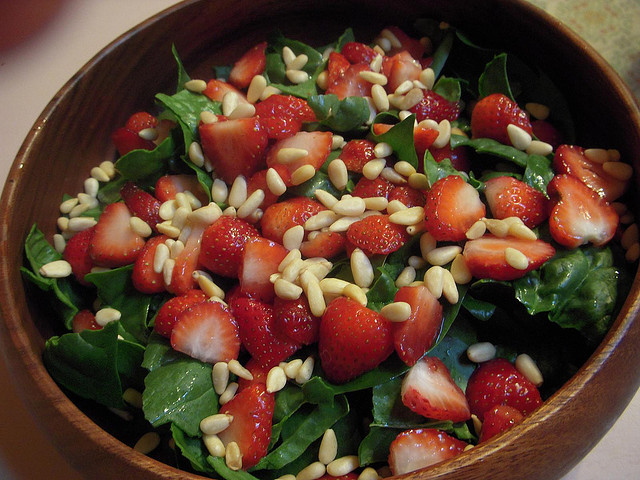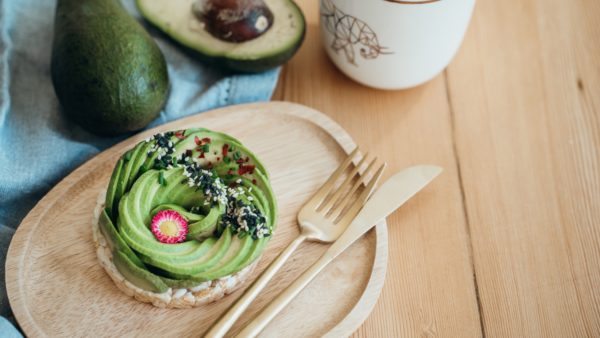Reading Time: 5 minutes
Many of you will probably know Susan Schenck because of her wonderful book “The Live Food Factor: The Comprehensive Guide to the Ultimate Diet for Body, Mind, Spirit & Planet”. This publication is over 600 pages in length and has been referred to as the encyclopedia of the raw food diet”.
In her latest book, “Beyond Broccoli, Creating a Biologically Balanced Diet When a Vegetarian Diet Doesn’t Work
Her hair was falling out, she was losing muscle, which was being replaced with flab, she was getting bags under her eyes and her memory was deteriorating. Even though she had been taking sublingual B12 for years, blood tests showed that she was seriously deficient in the vitamin.
Susan consulted natural hygienist Stanley Bass – who she now cites as being an important mentor – and he advised her to add a few raw eggs to her diet every day. After many years of being a committed vegetarian, and six years on a raw vegan diet, she was reluctant to consume meat or fish but was willing to compromise and add eggs, as well as a small amount of goat cheese, to her diet because she knew her health was suffering.
Even still, after about a year on this regime, as well as having regular B12 shots, her vitamin B12 levels were still not up to normal. This was when she decided that she needed to include meat in her diet again.
So she began consuming small portions of wild fish, organic chicken, and grass-fed meat on an almost daily basis, as well as cutting back on her intake of carbs. This is when her health really took off and she started to experience enhanced mental clarity that sometimes exceeded that of her youth.
Her motive in writing “Beyond Broccoli” is to educate people about the possible dangers of following a strict vegan diet. She explains how raw and vegan diets can be deficient in certain nutrients, but that these deficiencies can sometimes take years to manifest.
This is why many people appear to do really well on raw vegan diets for the first year or two but very often find their health and energy levels begin to decline the longer they follow the diet. They find it hard to believe the diet that made them feel so fantastic in the beginning could actually be the source of their new health problems. Often those on raw vegan diets think they need to do some deeper cleansing and so become even more strict, when in actuality they may be exhibiting the signs of a deficiency in fat-soluble vitamins or long-chain omega-3 fats.
When writing her first book, “The Live Food Factor”, one of Susan’s primary intentions was to highlight a large number of studies available that support the potential health benefits of the raw food diet. In “Beyond Broccoli” Susan’s emphasis on verifiable scientific research is equally evident. She presents a carefully considered argument as to why at least some of us may find it challenging to thrive on a vegan diet as a long-term approach to eating.
However, one thing that has not changed in Susan’s approach is her commitment to the importance of consuming a diet with a very high percentage of raw foods in order to support our optimal health. She asserts that the reason people’s health can fail on raw vegan diets is not related to the raw aspect of the diet but rather occurs when we completely eliminate the animal foods that we have evolved to survive on.
Susan has stated she really didn’t want to write this book and resisted it for over a year. Eventually she decided that she had to speak the truth because she realized that many people were giving up on raw diets when the real source of their problem was their vegan diets, not the raw food.
She asks readers to keep an open mind and consider her arguments from a rational rather than an emotional perspective. Even though you may be doing well eating a strict raw vegan diet, this doesn’t mean that it works for everyone, she says.
She adds that it may be easier to adapt to a vegan diet if you start when you are young. Those who make the change in their forties or later may find their body less able to make the metabolic adaptations necessary to adjust to the change in diet than those who commence in their twenties.
Susan talks at length about metabolic typing, which she believes is one of the main reasons why certain people do well on high carbohydrate, fruit-based raw vegan diets, while others seem to function better with a higher intake of fat and protein. However, regardless of your type she asserts that almost everyone will benefit by including animal products in their diet occasionally. Her message is that we should include at least a little bit of animal foods in our diet – about 5 to 10 percent of caloric intake – preferably raw or only lightly cooked.
Overall I found this book to be very well researched and I appreciated Susan’s careful documentation of her references so that readers can follow up on the scientific studies she mentioned if they want to do their own examination on a particular topic.
I believe that anyone truly interested in achieving optimal health and learning about nutrition will enjoy reading this book. Even if you are a committed ethical vegan you can greatly benefit from the information Susan presents on how to prevent deficiencies on a raw vegan diet with the use of superfoods and nutritional supplements.
No doubt many people will resist Susan’s work on this topic and she has expressed that she has already received quite a bit of negative feedback. However, I applaud her commitment to searching for the truth and honestly communicating her personal experiences and knowledge on this very important subject.
Above all I value the concept that everyone is individual and that we all need to find out what works for us on our own personal journey. An attitude of tolerance and acceptance for every person’s unique path is of paramount importance as we all strive to attain our highest potential of health and holistic wellbeing.
Disclosure: This article contains Amazon affiliate links, which means that if you click on a link and purchase a product the price remains the same for you but I receive a small commission. Thank you for supporting Live Remedy!



